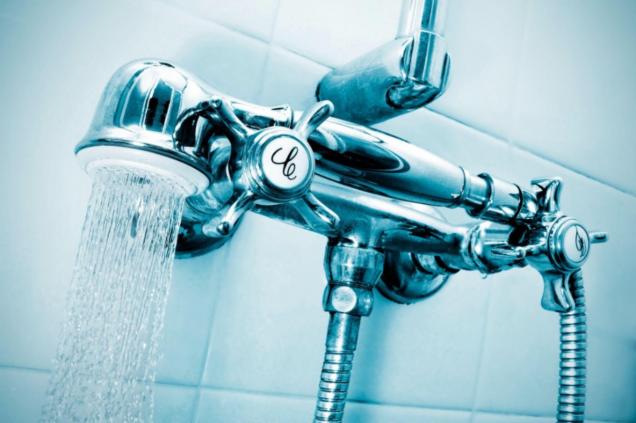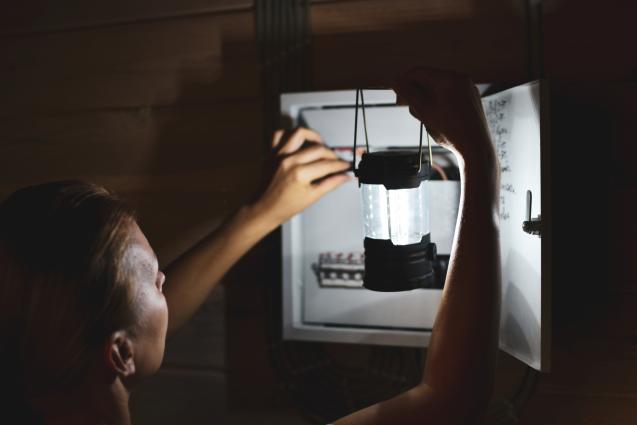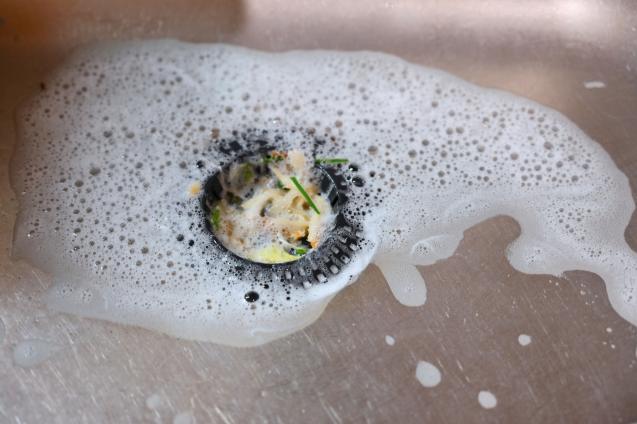
Costs of a Hot Water System
By Precise Plumbing and Electrical|June 20, 2019
Buying a new water heater for your home may not be the most exciting purchase, but it can make a big difference in your comfort level over the years. However, there is more that goes into the total cost than just the price of the equipment. Here are seven factors you'll need to consider when evaluating the true cost of various hot water systems.
1. The Type and Size of the System
You'll have several different categories from which to choose when looking at hot water heaters, and they each fetch different average prices.
Type of System and Minimum Price to Maximum Price
Electric - Tank $450 to $1,800
Electric - Tankless $660 to $1,300
Gas - Tank $850 to $1,500
Gas - Tankless $750 to $1,600
Solar - $3,600 to $4,400
Solar - Electric $3,900 to $5,000
Solar - Gas $4,900 to $6,500
Heat Pump - $3,300 to $4,000
Electric Water Heaters
Electric systems are available in both storage tank and tankless options. For models with storage tanks, the price increases along with the size of the tank. Tankless varieties tend to cost more up front, but you'll save a lot of money on your electric bills, as you'll only be heating water as needed, rather than maintaining the heat all the time.
Gas Hot Water Systems
Like with electric water heaters, gas hot water systems also come in both storage tank and tankless configurations. The pricing structure is similar as well, with tankless heaters and those with large storage tanks costing more than their counterparts with smaller tanks.
Solar Water Heaters
More and more homeowners in Australia are embracing solar water heating, thanks to its energy-efficiency, minimal operating costs and benefits for the environment. These systems do tend to be the most expensive to install though, so you'll need to ensure you'll be living in your home long enough to generate savings from your investment. Depending on the climate in your area and the layout of your roof, you may need a gas-powered or electric supplement, which will add to your costs.
Heat Pumps
Heat pumps operate by drawing heat from the ambient air to heat the water. While these types of systems are energy-efficient, they can also be quite noisy, so be sure to weigh that factor up when making your decision. As with other types of water heaters, the price is typically based on the size of the storage tank.
2. Delivery Fees
Depending on the hot water heater installer you choose, you may have to pay a fee for the delivery of your new system. Some providers include this fee in the price of the water heater itself, but this isn't always the case. Be sure to research a few providers to find the one that provides the best rates and quality of service.
3. Installation Fees
With any style of water heater, you'll have to pay the technicians for the labour required to install the system. This fee is typically based on the complexity of the job. For example, switching from a gas system to an electric one will be a more complicated job than simply putting in a new heater of the same type. The more complex the job, the more you can expect to pay for the installation. Moving your water heater to a new location on your property will add to your installation costs as well.
4. Ease of Access
As with the complexity of the installation, the difficulty of accessing your property will also play a role in your costs. Hoisting a water heater through a window or up several flights of stairs is much more challenging than simply rolling it in on a cart, and that difficulty will be reflected in your labour charges.
5. Government Rebates or Incentives
Depending on the model you choose, you may be eligible for rebates or other incentives from the Australian government. In some cases, you could receive up to $1,200, which can make a big difference in your overall cost. Be sure to do plenty of research so that you can maximise your leverage of rebates and other incentives.
6. Removal and Disposal
If you need to have your old water heater hauled away, this will sometimes incur an additional charge. Some installers include this in the overall cost of their service, while others list it as a separate charge. As with many of the other items on this list, check with a few providers to get a sense of their rates and additional fees.
7. Ongoing Operation
Once your system is installed, you'll need to keep it up and running over the years. To do this, you'll need gas or electricity, even with a solar water heater. This is because you may need to supplement your hot water from time to time, such as on days when there isn't much sunshine or when the weather is especially cold. Here's what you can expect to pay each year, broken down by system type:
Type of System & Typical Annual Operating Costs
Electric $700 to $925
Gas $295 to $665
Solar $65 to $365
Heat Pump $160 to $385
Source: Canstar
High-Quality Hot Water Systems on the Central Coast
For all your hot water system installation needs, you can count on the experts at Precise Plumbing & Electrical for their dedicated customer service and fair prices. They offer water heaters from all the top brands, so reach out to their team today to learn more.
1. The Type and Size of the System
You'll have several different categories from which to choose when looking at hot water heaters, and they each fetch different average prices.
Type of System and Minimum Price to Maximum Price
Electric - Tank $450 to $1,800
Electric - Tankless $660 to $1,300
Gas - Tank $850 to $1,500
Gas - Tankless $750 to $1,600
Solar - $3,600 to $4,400
Solar - Electric $3,900 to $5,000
Solar - Gas $4,900 to $6,500
Heat Pump - $3,300 to $4,000
Electric Water Heaters
Electric systems are available in both storage tank and tankless options. For models with storage tanks, the price increases along with the size of the tank. Tankless varieties tend to cost more up front, but you'll save a lot of money on your electric bills, as you'll only be heating water as needed, rather than maintaining the heat all the time.
Gas Hot Water Systems
Like with electric water heaters, gas hot water systems also come in both storage tank and tankless configurations. The pricing structure is similar as well, with tankless heaters and those with large storage tanks costing more than their counterparts with smaller tanks.
Solar Water Heaters
More and more homeowners in Australia are embracing solar water heating, thanks to its energy-efficiency, minimal operating costs and benefits for the environment. These systems do tend to be the most expensive to install though, so you'll need to ensure you'll be living in your home long enough to generate savings from your investment. Depending on the climate in your area and the layout of your roof, you may need a gas-powered or electric supplement, which will add to your costs.
Heat Pumps
Heat pumps operate by drawing heat from the ambient air to heat the water. While these types of systems are energy-efficient, they can also be quite noisy, so be sure to weigh that factor up when making your decision. As with other types of water heaters, the price is typically based on the size of the storage tank.
2. Delivery Fees
Depending on the hot water heater installer you choose, you may have to pay a fee for the delivery of your new system. Some providers include this fee in the price of the water heater itself, but this isn't always the case. Be sure to research a few providers to find the one that provides the best rates and quality of service.
3. Installation Fees
With any style of water heater, you'll have to pay the technicians for the labour required to install the system. This fee is typically based on the complexity of the job. For example, switching from a gas system to an electric one will be a more complicated job than simply putting in a new heater of the same type. The more complex the job, the more you can expect to pay for the installation. Moving your water heater to a new location on your property will add to your installation costs as well.
4. Ease of Access
As with the complexity of the installation, the difficulty of accessing your property will also play a role in your costs. Hoisting a water heater through a window or up several flights of stairs is much more challenging than simply rolling it in on a cart, and that difficulty will be reflected in your labour charges.
5. Government Rebates or Incentives
Depending on the model you choose, you may be eligible for rebates or other incentives from the Australian government. In some cases, you could receive up to $1,200, which can make a big difference in your overall cost. Be sure to do plenty of research so that you can maximise your leverage of rebates and other incentives.
6. Removal and Disposal
If you need to have your old water heater hauled away, this will sometimes incur an additional charge. Some installers include this in the overall cost of their service, while others list it as a separate charge. As with many of the other items on this list, check with a few providers to get a sense of their rates and additional fees.
7. Ongoing Operation
Once your system is installed, you'll need to keep it up and running over the years. To do this, you'll need gas or electricity, even with a solar water heater. This is because you may need to supplement your hot water from time to time, such as on days when there isn't much sunshine or when the weather is especially cold. Here's what you can expect to pay each year, broken down by system type:
Type of System & Typical Annual Operating Costs
Electric $700 to $925
Gas $295 to $665
Solar $65 to $365
Heat Pump $160 to $385
Source: Canstar
High-Quality Hot Water Systems on the Central Coast
For all your hot water system installation needs, you can count on the experts at Precise Plumbing & Electrical for their dedicated customer service and fair prices. They offer water heaters from all the top brands, so reach out to their team today to learn more.



